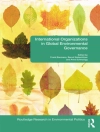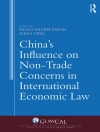In any democracy, the central problem of governance is how to inform, organize, and represent the opinions of the public in order to advance three goals: popular control over leaders, equality among citizens, and competent governance. In most political analyses, voting is emphasized as the central and essential process in achieving these goals. Yet democratic representation encompasses a great deal more than voter beliefs and behavior and, indeed, involves much more than the machinery of elections. Democracy requires government agencies that respond to voter decisions, a civil society in which powerful organized interests do not dominate all others, and communication systems that permit divergent voices to be heard.
Representation: Elections and Beyond brings together leading international scholars from a wide range of disciplines to explore the twenty-first-century innovations—in voting laws and practices, in electoral systems, in administrative, political, and civil organizations, and in communication processes and new technologies—that are altering how we understand democratic representation. Featuring twelve essays that engage with national, provincial, and municipal governments across three continents, this volume tackles traditional core elements of democratic representation, such as voting, electoral systems, and political parties, while also underscoring the ways in which beliefs and preferences of citizens are influenced, expressed, and aggregated and the effects of those methods and practices on political agendas and policy outcomes. In pinpointing deficiencies in contemporary democratic practices and possibilities for reform, Representation provides an invaluable roadmap to improve democratic representation in the twenty-first century.
Contributors: André Blais, Pradeep Chhibber, Archon Fung, Jacob Hacker, Zoltan Hajnal, Matthew Hindman, David Karpf, Georgia Kernell, Alexander Keyssar, Anthony Mc Gann, Susan Ostermann, Paul Pierson, Dennis Thompson, Jessica Trounstine, Mark E. Warren.
Jadual kandungan
Introduction. The Multiplying Challenges of Modern Representation
—Rogers M. Smith and Jack H. Nagel
I. REPRESENTATION THROUGH ELECTIONS
Chapter 1. Evaluating U.S. Electoral Institutions in Comparative Perspective
—André Blais
Chapter 2. Are American Elections Sufficiently Democratic?
—Dennis F. Thompson
Chapter 3. Barriers to Voting in the Twenty-First Century
—Alexander Keyssar
Chapter 4. Uneven Democracy: Turnout, Minority Interests, and Local Government Spending
—Zoltan Hajnal and Jessica Trounstine
Chapter 5. Fairness and Bias in Electoral Systems
—Anthony Mc Gann
Chapter 6. Political Party Organizations, Civic Representation, and Participation
—Georgia Kernell
II. REPRESENTATION BEYOND ELECTIONS
Chapter 7. The Paradox of Voting—for Republicans: Economic Inequality, Political Organization, and the American Voter
—Jacob S. Hacker and Paul Pierson
Chapter 8. A Democratic Balance: Bureaucracy, Political Parties, and Political Representation
—Pradeep Chhibber and Susan L. Ostermann
Chapter 9. The Closing of the Frontier: Political Blogs, the 2008 Election, and the Online Public Sphere
—Matthew Hindman
Chapter 10. The Technological Basis of Organizational Membership: Representation of Interests in the New Media Age
—Dave Karpf
Chapter 11. The Principle of Affected Interests: An Interpretation and Defense
—Archon Fung
Chapter 12. Citizen Representatives
—Mark E. Warren
Notes
List of Contributors
Index
Acknowledgments
Mengenai Pengarang
Jack H. Nagel is Professor Emeritus of Political Science at the University of Pennsylvania and author of The Descriptive Analysis of Power and Participation. Rogers M. Smith is Christopher H. Browne Distinguished Professor of Political Science at the University of Pennsylvania. He is editor of Citizenship, Borders, and Human Needs and coeditor of Varieties of Citizenship and Sovereignty, both available from the University of Pennsylvania Press.












